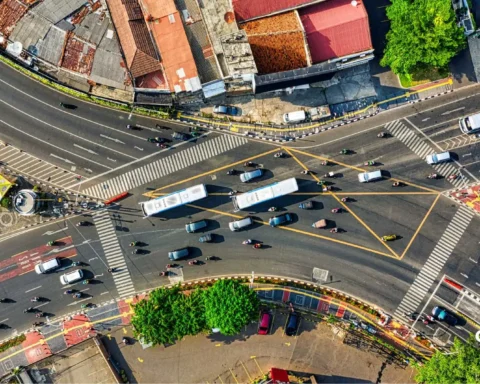Journalism is a multifaceted field encompassing many roles, including journalists and reporters. While these terms are often used interchangeably, there are distinct differences between the two professions. Understanding the differences between a journalist and a reporter can provide greater insight into the news industry and the vital roles these professionals play in keeping the public informed.
Table of Contents
What is Journalism?
Journalism is the practice of gathering, assessing, creating, and presenting news and information. It serves as a critical component of democratic societies, ensuring that the public has access to current events and factual information. Journalism encompasses a variety of media, including newspapers, magazines, television, radio, and online platforms, and it is vital for the dissemination of news stories to a wide audience.
LISTEN TO THIS PODCAST: Ethics in Journalism: Balancing Facts and Sensationalism with Colin Maximin
Who is a Journalist?
A journalist is a professional who investigates, writes, and reports news stories. They may work for news organizations such as newspapers, television stations, radio stations, or online news sites. Journalists can specialize in different types of journalism, such as investigative journalism, political journalism, sports journalism, and more. They are responsible for creating content that informs, educates, and sometimes entertains the public. Journalists often have a nose for news, a knack for storytelling, and the ability to communicate complex information clearly and concisely.

Skills Needed to Be a Journalist
To succeed as a journalist, one must possess a variety of skills that enable them to gather, analyze, and communicate information effectively. Key skills include:
Writing Skills
Journalists must have exceptional writing skills to craft clear, concise, and engaging news stories. They need to be adept at different styles of writing, from news reports to feature articles and editorials.
Communication Skills
Strong communication skills are essential for conducting interviews, engaging with sources, and presenting information. Journalists must be able to convey their findings to the public in a manner that is both informative and accessible.
Time Management Skills
Journalists often work under tight deadlines. Effective time management skills are crucial to ensure that news stories are researched, written, and published promptly.
Research Skills
A good journalist must be skilled in conducting thorough research using a variety of sources. This includes background research, fact-checking, and verifying information from multiple perspectives.
Critical Thinking and Analytical Skills
Journalists need to analyze complex situations, understand the broader context, and present balanced viewpoints. Critical thinking helps in making sense of large amounts of information and identifying the most important elements of a story.
What is Reporting?
Reporting is a subset of journalism focused specifically on the process of gathering and presenting news. Reporting involves the detailed and factual delivery of news stories as they happen. Reporters are tasked with attending news events, conducting first-person interviews, and providing live or recorded coverage for various media outlets.
YOU MIGHT BE INTERESTED IN: Press Freedom in Peril? India’s Fake News Crisis with Ahmer Khan
Who is a Reporter?
A reporter, or news reporter, is a type of journalist who is directly involved in the collection and dissemination of news. They often work in the field, covering breaking news, attending news conferences, and interviewing people to gather the information needed for news reports. There are various types of reporters, including television news reporters, radio journalists, and those who write news for newspapers. The role of a reporter is to provide accurate, timely, and factual news stories to their target audience.
Skills Needed to Be a Reporter
While reporters share many of the same skills as journalists, there are specific abilities that are particularly crucial for effective reporting:
Observation and Attention to Detail
Reporters must have keen observation skills to notice important details during news events. This includes paying attention to the setting, participants, and any unexpected occurrences that may add depth to their news report.
Interviewing Skills
Conducting interviews is a significant part of a reporter’s job. They must be able to ask pertinent questions, listen actively, and extract useful information from interviewees.
On-the-Spot Thinking
Reporters often need to think on their feet, especially when covering live events or breaking news. They must be able to process information and present it coherently and quickly.
Adaptability
The news landscape can change rapidly, and reporters must adapt to various situations and challenges. This includes being prepared to cover different types of stories and adjust to new information as it becomes available.
Technical Skills
Modern reporters must be familiar with various technical tools and platforms used in the news industry. This includes using cameras, editing software, and social media to disseminate news stories.

Common Aspects
These following aspects make the words “journalist” and “reporter” used interchangeably.
Commitment to Truth
Both journalists and reporters share a commitment to truth and accuracy. They adhere to ethical standards and principles set by organizations such as the Society of Professional Journalists.
Communication Skills
Both professions require excellent communication skills to convey information clearly and effectively. Whether writing an in-depth article or delivering a news report, the ability to communicate is paramount.
Critical Thinking
Journalists and reporters must both possess strong critical thinking skills to analyze information, identify important details, and present balanced viewpoints.
Public Service
Both roles serve the public by providing necessary information that helps people make informed decisions. They play a vital role in upholding the principles of a democratic society.
READ THIS ARTICLE ON: Famous Female Journalists in India Shaping the Narrative Today
Differences Between a Journalist and a Reporter
Scope of Work
The key differences between a journalist and a reporter lie in the scope of their work. While all reporters are journalists, not all journalists are reporters. Journalists may work behind the scenes, conducting research, writing editorials, and producing content for various media outlets. On the other hand, reporters are often seen on the front lines, actively gathering news and reporting it as it happens.
Focus and Specialization
Journalists often have a broader focus and may cover a wide range of topics. They can specialize in specific areas such as politics, sports, or entertainment. Reporters typically focus on breaking news and live events, providing timely updates to their audience.
Work Environment
Journalists can work from news desks, conducting research and writing articles. Reporters are more likely to be out in the field, attending news events and interviewing people. Their job requires them to be present where news is happening, whether it be a press conference, a crime scene, or a public demonstration.
Presentation
Reporters often present their news stories on television, radio, or streaming services, whereas journalists may produce written content for newspapers, magazines, or online platforms. Reporters are more likely to be the public face of the news, while journalists work behind the scenes.
Variety of Roles
The news industry employs various types of journalists, including content writers, editorial writers, and investigative journalists. Reporters are a specific subset of journalists whose primary role is news reporting. Other types of journalists might include those working for news agencies, news anchors, and those involved in radio journalism.
ALSO READ: Sports Journalism 101: Everything You Need to Know to Get Started
Conclusion
Now that you’ve discovered the key differences between a journalist and a reporter, journalists create opinion-based content while reporters focus on factual storytelling. Both adhere to ethical standards, ensuring accuracy and truth in their work. These roles contribute uniquely to the news industry. With the rise of digital platforms and streaming services, the roles of journalists and reporters will continue to adapt, maintaining their essential function in our world.

FAQs
What is the difference between press and journalism?
The press refers specifically to news media and organizations that disseminate news, while journalism encompasses the broader practice of gathering, assessing, and presenting news and information. Essentially, the press is an institution within the field of journalism.
Who is the father of journalism?
The title “father of journalism” is often attributed to Joseph Pulitzer, who significantly shaped modern journalism through his innovations in news reporting, investigative journalism, and the establishment of the Pulitzer Prizes.
What are the 7 ethics of journalism?
The seven ethics of journalism typically include accuracy, independence, impartiality, humanity, accountability, transparency, and fairness. These principles guide journalists in providing reliable, unbiased, and responsible news coverage.









